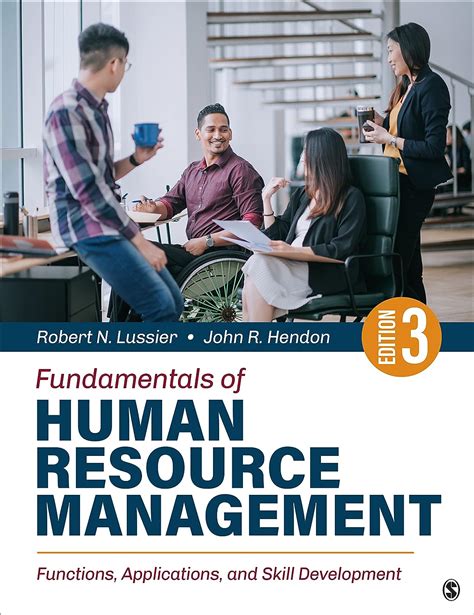Effective Human Resource Management (HRM) is crucial for the success of any organization. It encompasses a wide range of activities, including recruitment, employee relations, benefits administration, and performance management. In this article, we will delve into the essential functions of HRM and the skills required for its development.
The Importance of Human Resource Management
Human Resource Management plays a vital role in ensuring that an organization has the right people, with the right skills, in the right place, at the right time. It involves the strategic use of human resources to achieve organizational goals and objectives. A well-managed HR function can help to improve employee engagement, productivity, and retention, leading to increased competitiveness and success.
Functions of Human Resource Management
The primary functions of Human Resource Management can be broadly categorized into the following areas:

- Recruitment and Selection: This involves the process of attracting, selecting, and hiring new employees to fill job vacancies.
- Employee Relations: This function deals with the management of employee relations, including employee engagement, communication, and conflict resolution.
- Training and Development: This involves the provision of training and development opportunities to help employees acquire new skills and improve their performance.
- Benefits Administration: This function involves the management of employee benefits, including compensation, health insurance, and retirement plans.
- Performance Management: This involves the evaluation of employee performance, including setting goals, providing feedback, and conducting performance reviews.
Skills Development Essentials
To be effective in HRM, certain skills are essential. These include:

- Communication Skills: The ability to communicate effectively with employees, management, and other stakeholders is critical in HRM.
- Interpersonal Skills: HR professionals need to have strong interpersonal skills to build relationships with employees and manage conflicts.
- Analytical Skills: The ability to analyze data and make informed decisions is essential in HRM.
- Problem-Solving Skills: HR professionals need to be able to identify and solve problems, including employee relations issues and benefits administration.
- Leadership Skills: HR professionals need to have strong leadership skills to manage and motivate employees.
Developing HRM Skills
To develop the skills required for HRM, the following strategies can be employed:

- Training and Development Programs: Participation in training and development programs, including workshops, conferences, and online courses, can help to develop HRM skills.
- Mentorship: Working with experienced HR professionals can provide valuable guidance and support.
- Certification: Obtaining certification, such as the SHRM-CP or PHR, can demonstrate expertise and commitment to the field.
- Networking: Building relationships with other HR professionals can provide opportunities for learning and growth.
Challenges in HRM
Despite its importance, HRM faces several challenges, including:

- Talent Management: The challenge of attracting and retaining top talent in a competitive job market.
- Diversity and Inclusion: The challenge of creating a diverse and inclusive workplace culture.
- Employee Engagement: The challenge of engaging and motivating employees to improve productivity and performance.
- Technology: The challenge of leveraging technology to improve HR processes and systems.
Best Practices in HRM
To overcome the challenges in HRM, the following best practices can be employed:

- Strategic Planning: Aligning HR strategies with organizational goals and objectives.
- Employee Feedback: Encouraging employee feedback to improve HR processes and systems.
- Diversity and Inclusion: Creating a diverse and inclusive workplace culture.
- Technology: Leveraging technology to improve HR processes and systems.






In conclusion, Human Resource Management is a critical function in any organization. It requires a range of skills, including communication, interpersonal, analytical, problem-solving, and leadership skills. By developing these skills and employing best practices, HR professionals can overcome the challenges in HRM and create a positive and productive work environment.
FAQ Section
What is Human Resource Management?
+Human Resource Management (HRM) is the process of managing an organization's workforce to achieve its goals and objectives.
What are the functions of Human Resource Management?
+The primary functions of HRM include recruitment and selection, employee relations, training and development, benefits administration, and performance management.
What skills are required for Human Resource Management?
+The skills required for HRM include communication, interpersonal, analytical, problem-solving, and leadership skills.
